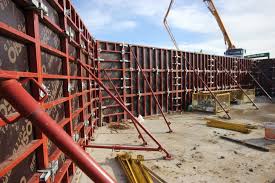Nov . 08, 2024 22:35 Back to list
Modular Formwork Solutions for Efficient Concrete Production Facilities and Construction Projects
Modular Formwork for Concrete Factories A Revolution in Construction
In the pursuit of efficiency and innovation within the construction industry, modular formwork has emerged as a game-changing solution, particularly in concrete factories. This modern system not only streamlines the construction process but also enhances the quality and durability of concrete structures. With the ever-increasing demand for sustainable and cost-effective building solutions, understanding the role of modular formwork is essential for construction professionals.
What is Modular Formwork?
Modular formwork is a temporary structure that holds freshly poured concrete in place until it hardens. Unlike traditional formwork, which often requires extensive labor and time, modular formwork is designed in pre-fabricated, interchangeable units. This adaptability allows for quick assembly and disassembly, significantly reducing construction time and labor costs.
There are various types of modular formwork systems, including plastic, wood, metal, and composite materials. Among these, metal formwork—especially steel and aluminum—has gained significant popularity due to its strength, durability, and reusability. These materials offer excellent resistance to deformation and can withstand the pressures exerted by concrete, making them ideal for large-scale projects.
Benefits of Modular Formwork in Concrete Factories
1. Efficiency and Speed
One of the most significant advantages of modular formwork is the speed it brings to the construction process. The pre-fabricated units can be quickly assembled on-site, allowing for faster pouring of concrete and reducing overall project timelines. In concrete factories, where time is often equated with cost, this efficiency can lead to substantial savings.
2. Cost-effectiveness
Using modular formwork can drastically reduce the costs associated with labor and materials. The reusable nature of these systems means that they can be employed for multiple projects over their lifespan. Additionally, less material waste is generated during construction, leading to lower expenses and a decreased environmental footprint.
3. Design Flexibility
modular formwork for concrete factories

Modular formwork offers unparalleled design flexibility. With interchangeable and adjustable components, architects and engineers can create complex shapes and structures without the need for custom-built forms. This flexibility is especially beneficial for concrete factory construction, where unique designs may be necessary to accommodate specific production requirements or operational workflows.
4. Improved Quality Control
Quality control is paramount in concrete production. Modular formwork systems enhance the quality of cast concrete by providing a precise, stable framework that maintains the required shape and dimensions. This consistency results in fewer defects and a more uniform strength, which is crucial for structural integrity.
5. Sustainability
As the world moves towards greener construction practices, modular formwork presents an eco-friendly alternative to traditional methods. The ability to reuse formwork systems reduces the necessity for new materials in every project, thus conserving resources. Moreover, the efficiency achieved with modular systems often leads to faster construction times, which minimizes the overall environmental impact of the building process.
Case Studies of Modular Formwork in Action
Several concrete factories worldwide have successfully adopted modular formwork, yielding impressive results. For example, in Europe, a leading concrete company integrated modular formwork into its production lines, resulting in a 30% reduction in construction time for new facilities. The reusability of the formwork also contributed to lower operational costs, demonstrating how effective this system can be when employed strategically.
In Asia, multiple urban development projects have recognized the advantages of modular formwork, particularly in high-rise buildings. By using modular systems, these projects achieved enhanced structural integrity while adhering to strict deadlines and budget constraints.
Conclusion
The adoption of modular formwork in concrete factories represents a significant leap forward in construction methodologies. As the industry continues to evolve, embracing innovations like modular formwork will undoubtedly enhance productivity, improve sustainability, and streamline project management. For construction professionals looking to stay ahead in a competitive landscape, understanding and implementing this technology is essential. The benefits of modular formwork not only contribute to the success of individual projects but also promote a more sustainable and efficient future for the entire construction industry.
-
Premium Formwork Wing Nuts & Tie Rods | Factory Supplier
NewsAug.29,2025
-
Expert Ringlock Scaffolding: Durable, Safe, Efficient Solutions
NewsAug.28,2025
-
Ringlock Scaffolding: Strong, Safe & Efficient Solutions
NewsAug.27,2025
-
OEM Column Formwork: Circular, Curved & Inclined Solutions
NewsAug.26,2025
-
Premium Scaffolding Jacks: Stable, Adjustable & Durable
NewsAug.25,2025
-
OEM Wall Formwork & Shuttering: Flexible & Curved Solutions
NewsAug.24,2025